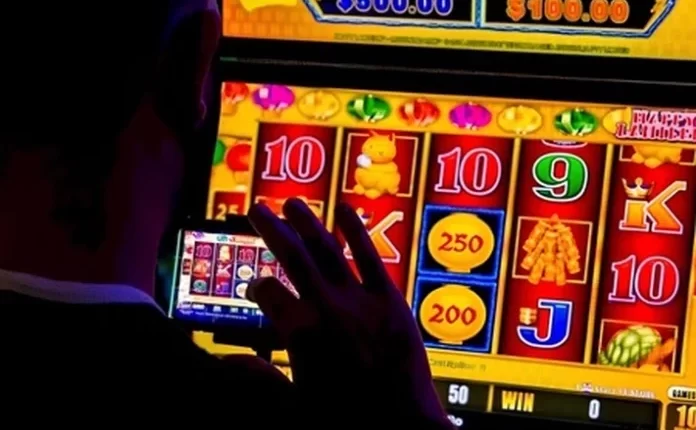Appreciating Security Forces Confiscating Online Gambling TPPU Assets
By: Karmila Asri )*
The government through the Indonesian National Police seized the Arrus Hotel in Semarang, Central Java, related to the Crime of Money Laundering (TPPU) of online gambling or Online Gambling. The seizure needs to signify the Government’s tireless efforts in eradicating Online Gambling, so it needs to get broad support from the community.
The Indonesian government continues to increase efforts to eradicate online gambling which is increasingly rampant with an emphasis on stricter law enforcement and cross-sector collaboration. One of these successes is through the seizure of the Arrus Hotel assets in Semarang, Central Java, which are related to TPPU Online Gambling. Regarding this, the Director of Special Economic Crimes at the National Police Criminal Investigation Unit, Brigadier General Pol. Helfi Assegaf, revealed that the construction of the hotel came from Judol transactions carried out by players to online gambling bookies, such as Defabet, Agen138, and Judi Bola.
Not only that, the hotel construction funds also came from cash withdrawals and deposits with a total transaction of Rp. 40.560 billion. According to the Police, the modus operandi carried out in this case was that all the money from online gambling was collected in nominee accounts that had been created. Then, the funds in the nominee accounts were placed, transferred, withdrawn in cash, and placed into other nominee accounts. Brigadier General Pol. Helfi explained that this was done as an attempt at deception.
Previously, the Chief of the Indonesian National Police, General Listyo Sigit Prabowo, emphasized the importance of an integrated legal approach in eradicating online gambling. He emphasized that effective law enforcement must be accompanied by strict supervision and close collaboration between various related agencies, including the Financial Transaction Reports and Analysis Center (PPATK).
According to data obtained from PPATK, the turnover of money involved in online gambling in Indonesia was recorded to have reached a very significant figure, namely IDR 283 trillion until the third quarter of 2024. This figure shows that online gambling is not just a small problem, but a serious threat that requires deep attention and comprehensive handling from all elements of the state.
In addition to stronger law enforcement aspects, regulatory and technology-based approaches also play an important role in eradicating online gambling. Dean of the Faculty of Law, University of Bhayangkara Jakarta Raya, Laksanto Utomo, emphasized the need for international cooperation, especially with countries where online gambling servers operate.
In addition, he also highlighted the importance of public education through counseling to increase awareness of the dangers of online gambling, especially among the younger generation who are vulnerable to exposure.
The use of sophisticated technology by online gambling operators is often a major challenge in law enforcement. The large number of servers located abroad and access that can be done through personal devices makes it difficult for authorities to track player transactions and activities.
However, Laksanto reminded that tighter supervision of account numbers used for transactions could narrow the perpetrators’ room to maneuver. In this case, PPATK has a vital role to ensure that the financial system is not used to facilitate detrimental online gambling networks.
Furthermore, Laksanto also reminded that effective law enforcement cannot be realized without strong support from the community, including active participation in reporting suspicious activities that can harm many parties.
The challenges of morality and social responsibility are also part of the problems that the government must face. Member of Commission III of the Indonesian House of Representatives, Bambang Soesatyo (Bamsoet), emphasized that online gambling is not only a legal issue, but also concerns moral values that apply in society.
Bamsoet also revealed that the involvement of certain state officials, including employees of the Ministry of Communication and Digital (Komdigi) who are suspected of being “backers” for online gambling sites, shows the importance of integrity reform within the government.
Bambang explained that the increasingly easy payment methods, such as the use of credit, e-wallets, and virtual accounts, have contributed to the increase in the number of online gambling. In addition, increasingly sophisticated marketing methods, through influencers, government website backlinks, and promotions via social media, have made it increasingly difficult to eradicate online gambling. In one case that was successfully uncovered, investigators managed to confiscate Rp73 billion in cash from a network involving 15 suspects, including 11 Komdigi employees.
The government continues to work with various parties, including non-governmental organizations (NGOs) and academics, to create a safer and more child-friendly digital environment, which not only addresses the risks of online gambling, but also educates the public about wise internet use.
The Indonesian government, under the leadership of President Prabowo Subianto, has demonstrated a strong commitment to eradicating online gambling as part of a broader digital transformation agenda. Handling the problem of online gambling is not only the responsibility of law enforcement, but also requires the active involvement of all elements of society, including the private sector and civil society.
With a more integrated and sustainable approach, the government is optimistic that it can stop online gambling practices that have been detrimental to the nation and create a safer digital environment for all parties.
)* Contributor to the Indonesian Gold Forum
